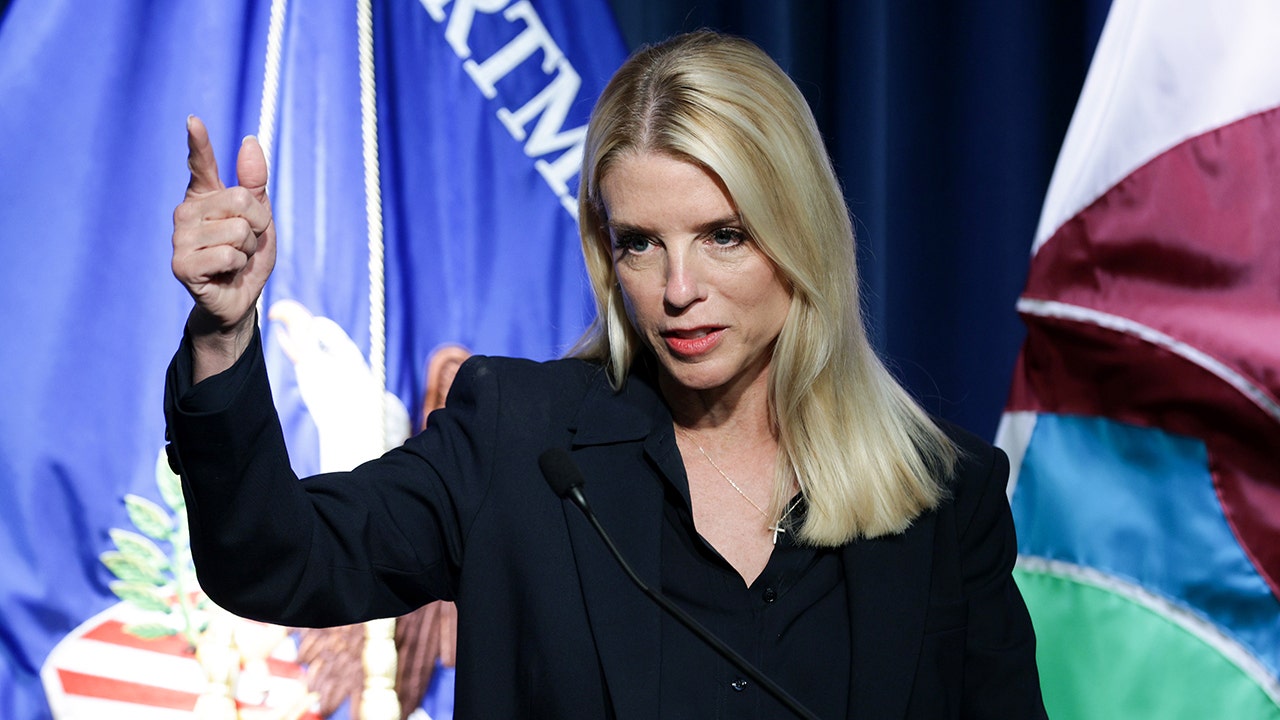Bondi’s DOJ Crackdown on Sanctuary Cities and South Carolina Cooperation
As of August 15, 2025, U.S. Attorney General Pam Bondi has announced a robust Department of Justice (DOJ) initiative targeting sanctuary jurisdictions—cities, counties, and states with policies limiting cooperation with federal immigration enforcement. Bondi’s actions, aligned with President Donald Trump’s immigration agenda, emphasize lawsuits, funding cuts, and federal cooperation, with South Carolina highlighted as a model for compliance. Below is a detailed analysis of the crackdown, South Carolina’s role, and the broader context, drawing on available information.
Details of the DOJ Crackdown
- Sanctuary Jurisdiction List:
- On August 5, 2025, the DOJ published a list of 35 sanctuary jurisdictions (13 states, 4 counties, 18 cities) with policies impeding federal immigration laws, pursuant to Executive Order 14287 (signed April 28, 2025, by President Trump).
- Listed Jurisdictions:
- States: California, Colorado, Connecticut, Delaware, Illinois, Minnesota, Nevada, New York, Oregon, Rhode Island, Vermont, Washington, District of Columbia.
- Counties: Baltimore County (MD), Cook County (IL), San Diego County (CA), San Francisco County (CA).
- Cities: Albuquerque, Berkeley, Boston, Chicago, Denver, East Lansing, Hoboken, Jersey City, Los Angeles, New Orleans, New York City, Newark, Paterson, Philadelphia, Portland (OR), Rochester (NY), Seattle, San Francisco.
- Rationale: Bondi stated, “Sanctuary policies impede law enforcement and put American citizens at risk by design,” emphasizing public safety and federal law compliance.
- Actions Taken:
- Demand Letters: On August 14, 2025, Bondi sent letters to sanctuary jurisdictions, giving them one week to comply with federal immigration laws or face DOJ legal action.
- Lawsuits: The DOJ has filed lawsuits against jurisdictions like New York City (July 24, 2025) and Chicago, seeking to compel compliance.
- Funding Cuts: Bondi ordered a pause on all federal funding to sanctuary cities until compliance reviews are completed, reviving a Trump-era policy to withhold public safety grants.
- Criminal Investigations: U.S. Attorneys’ offices are directed to investigate non-cooperative local governments for potential prosecution.
- D.C. Takeover: Bondi ended Washington, D.C.’s sanctuary policies, appointing DEA chief Terry Cole as “emergency police commissioner” to enforce federal immigration laws, rescinding prior D.C. orders limiting arrests for immigration warrants.
- South Carolina Cooperation:
- Highlighted Model: In Greenville, South Carolina, on August 14, 2025, Bondi praised the state for its cooperation with federal immigration enforcement, contrasting it with sanctuary jurisdictions.
- Details:
- South Carolina has no statewide sanctuary policies and actively supports federal efforts, including compliance with Immigration and Customs Enforcement (ICE) detainers.
- The state’s cooperation includes sharing information and facilitating arrests of undocumented immigrants, aligning with Trump’s Executive Order 14287.
- Context: South Carolina’s stance reflects its conservative policies, with local law enforcement integrating with federal agencies like ICE and DHS, unlike states like California, which Bondi specifically warned about losing funding.
Legal and Policy Framework
- Legal Basis:
- Executive Order 14287: Directs the DOJ and Department of Homeland Security (DHS) to identify and penalize sanctuary jurisdictions, citing their obstruction of federal immigration laws.
- 8 U.S.C. § 1373: Requires local governments to cooperate with federal immigration authorities, a key statute used in DOJ lawsuits.
- Byrne JAG Grants: Federal funding programs like the Edward Byrne Memorial Justice Assistance Grant are withheld from non-compliant jurisdictions.
- DOJ Actions:
- Bondi’s memos, issued February 5, 2025, her first day as AG, prioritize funding pauses and legal challenges to sanctuary policies.
- The DOJ’s Civil Division is tasked with identifying and litigating against non-compliant local laws.
Critical Analysis
- Effectiveness:
- Pro: The DOJ’s actions signal a strong federal push, with funding cuts pressuring jurisdictions like Louisville, which revoked sanctuary policies after DOJ threats. South Carolina’s compliance demonstrates the model the DOJ seeks to replicate.
- Con: Resistance from Democratic-led jurisdictions (e.g., California, New York) persists, with leaders like Governor Gavin Newsom calling the DOJ’s list a “meaningless PR stunt.” Legal battles may face challenges in courts favoring local autonomy.
- Challenges:
- Jurisdictional Pushback: Some jurisdictions, like Baltimore County, dispute their inclusion, arguing compliance with federal law.
- Legal Limits: D.C. Council members, like Christina Henderson, argue Bondi lacks authority to unilaterally revoke local laws, potentially sparking constitutional disputes.
- Public Safety Debate: Critics claim sanctuary policies protect immigrant communities, while Bondi argues they shield “criminal aliens,” creating a polarized narrative.
- South Carolina’s Role: The state’s cooperation avoids funding cuts and strengthens federal-local partnerships, but its model may not scale to diverse urban centers with different demographics.
- Skeptical Perspective: The crackdown may be more symbolic than effective, as sanctuary cities often have political and legal resources to resist. Funding cuts could harm public safety programs, paradoxically undermining Bondi’s stated goals. The D.C. takeover raises concerns about federal overreach.
Practical Implications
- For Sanctuary Jurisdictions: Cities and states face a deadline to align with federal immigration laws or risk lawsuits and funding losses. Compliance may involve reversing policies limiting ICE cooperation.
- For Residents: In sanctuary cities, changes could lead to increased ICE activity, affecting undocumented immigrants. In cooperative states like South Carolina, federal enforcement may intensify.
- Monitoring Updates: Check DOJ press releases (https://www.justice.gov) or news outlets like The Washington Weekly Times for developments.
Conclusion
Attorney General Pam Bondi’s DOJ is aggressively targeting sanctuary jurisdictions with lawsuits, funding cuts, and federal oversight, as announced on August 14, 2025, while touting South Carolina’s cooperation as a model. The campaign, backed by Executive Order 14287, lists 35 jurisdictions and has already prompted compliance in some areas (e.g., Louisville). However, resistance from Democratic strongholds and legal challenges may limit its impact. The D.C. takeover and South Carolina’s example highlight the administration’s priorities, but the policy’s long-term success remains uncertain.
Tags: Pam Bondi, DOJ, sanctuary cities, immigration enforcement, South Carolina, federal cooperation, Executive Order 14287, funding cuts, lawsuits, ICE, public safety, Trump administration, California, New York City, D.C. takeover
